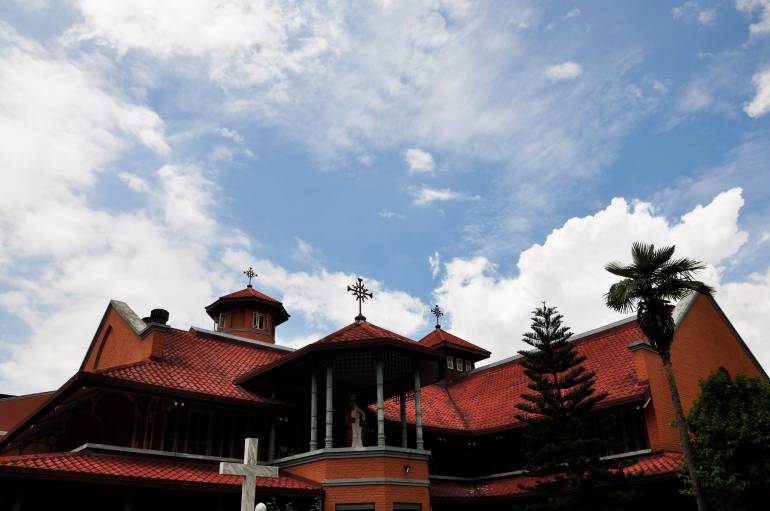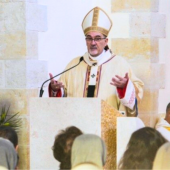Feast of Assumption celebrated at the Cathedral Church in Nepal

Catholics in Nepal celebrated the Feast of Assumption at the Cathedral Church, Dhobighat-Lalitpur, Kathmandu, Nepal on August 13 with much religious fervor and devotion.
Though the feast day date is fixed on August 15, the cathedral decided to celebrate the Assumption of Mary on August 13, the weekly holiday of Nepal, said Father Richard Rai, the parish priest.
It was more convenient for Catholics to celebrate the feast on August 13 (Saturday) than on Monday (August 15), said the parish priest of the Assumption of the Blessed Virgin Mary Cathedral.
In his homily, he explained the historical context and the importance of Mother Mary’s Assumption that she was taken into heaven with her body and soul.
According to Catholic teaching, the Assumption means the reception of the Blessed Virgin Mary into heaven. This was formally declared the doctrine of the Roman Catholic Church in 1950 by Pope Pius XII.
On August 13, Father Richard invited everyone to the Feast of Mary, irrespective of religious belief.
According to the 2011 census, Hindus account for approximately 81% of Nepal's estimated 29 million people, while Buddhists account for 9%, Muslims account for 4.4 percent, and Christians account for 1.4 percent.
Since the parish is also for the various embassies and staff of the United Nations in Kathmandu, different distinguished foreigners were present at the feast.
More than 250 believers and guests were present on the feast day.
After the Mass, there was an arrangement for a cultural program by the parish's youth.
A sumptuous lunch was also served for the vegetarians and non-vegetarians. There was joy, and the church was full.
"We were there to praise Mother Mary," said a parishioner. — With input from Indrani Dasgupta
Radio Veritas Asia (RVA), a media platform of the Catholic Church, aims to share Christ. RVA started in 1969 as a continental Catholic radio station to serve Asian countries in their respective local language, thus earning the tag “the Voice of Asian Christianity.” Responding to the emerging context, RVA embraced media platforms to connect with the global Asian audience via its 21 language websites and various social media platforms.














